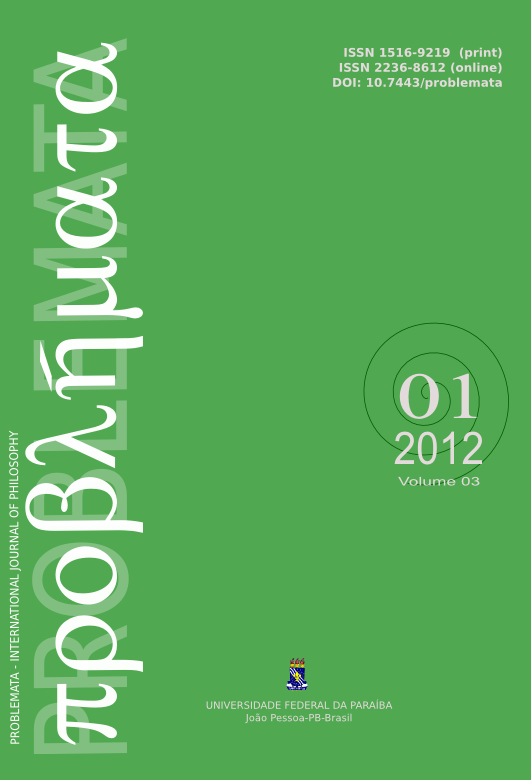SOME CONSIDERATIONS ON KANT'S ANALYTIC OF PRINCIPLES<a href="http://dx.doi.org/10.7443/problemata.v3i1.10949"><i> <b>[doi: 10.7443/problemata.v3i1.10949]</b></i></a>
DOI:
https://doi.org/10.7443/problemata.v3i1.10949Keywords:
princípios, conhecimento, tempo, pensamento, percepçõesAbstract
The purpose of this paper is to stress key points of the central part of the Critique of Pure Reason, in which it presents to Kant the task of having to explain how it is possible the knowledge synthetic a priori, while knowledge of fact. With this task is in question as a problem for Kant, explain how it puts the relationship between different things: thought and phenomenon, with a view to the establishment of knowledge. So the difficulty of Kant consists in to justify how can a science that works and can know the reality, in that it establishes the determination of thing as object of knowledge. The indication and interpretation of Heidegger, present in the text The question by thing served as the guideline for the development of a part of this work.Downloads
Download data is not yet available.
Downloads
Published
2012-05-29
Issue
Section
Papers
License
Authors who publish with this journal agree to the following terms:
- Authors retain copyright and grant the journal right of first publication with the work simultaneously licensed under a Creative Commons Attribution License that allows others to share the work with an acknowledgement of the work's authorship and initial publication in this journal.
- Authors are able to enter into separate, additional contractual arrangements for the non-exclusive distribution of the journal's published version of the work (e.g., post it to an institutional repository or publish it in a book), with an acknowledgement of its initial publication in this journal.
-
- Authors are permitted and encouraged to post their work online (e.g., in institutional repositories or on their website) prior to and during the submission process, as it can lead to productive exchanges, as well as earlier and greater citation of published work (See The Effect of Open Access).





